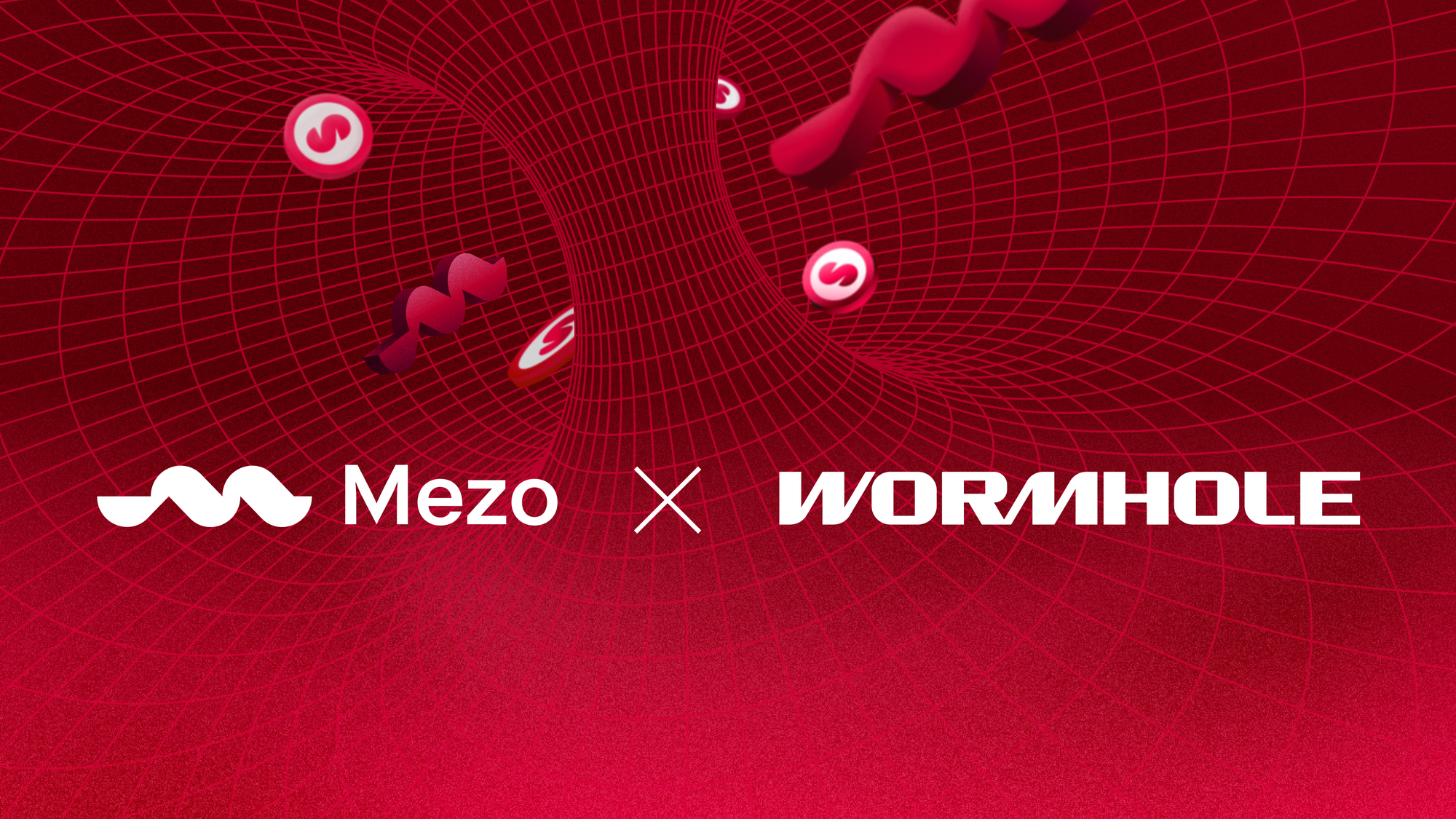Mezo and MUSD Go Multichain with Wormhole
MUSD is now live on Ethereum via Wormhole NTT. Earn yield, swap to other stablecoins, and offramp directly to your bank. Your Bitcoin-backed capital is now fully composable across DeFi.

We’re excited to announce two major integrations: Wormhole now supports Mezo, and MUSD is going multichain via Wormhole’s NTT (Native Token Transfers) standard, bringing seamless cross-chain capabilities for Mezo’s Bitcoin-backed stablecoin.
This unlocks an entire economy for Bitcoin holders:
- Deposit BTC to Mezo
- Borrow MUSD at a 1% fixed rate (no repayment terms, unlimited Bitcoin loan duration)
- Deposit MUSD in the Mezo native vault for up to 30% APY
- Provide liquidity on Mezo to earn mats incentives and yield from swap fees
- Bridge MUSD to Ethereum for additional yield strategies, including Curve, Uniswap, and more, coming soon.
The integration with Wormhole is a critical step in growing utility and adoption for MUSD. Users can now bridge MUSD between Mezo and Ethereum, unlocking deep liquidity and powerful new use cases across the multichain DeFi ecosystem.
Native, Composable, Multichain MUSD
At the core of this launch is Wormhole NTT (Native Token Transfers), an open, composable standard now powering MUSD’s multichain expansion. With NTT, MUSD is no longer constrained by wrapped token mechanics or liquidity fragmentation.
By adopting this standard, MUSD joins the ranks of leading protocols like Sky, Lido, and M0, and brings Bitcoin-native value into Ethereum’s vast liquidity layer.
Where You Can Use MUSD Today
With MUSD now on Ethereum, we're focused on growing deep liquidity and supporting MUSD’s yield ecosystem. Here's where you can start putting your MUSD to work:
- MUSD Vaults on Mezo – Earn yield on your Bitcoin-backed MUSD right within Mezo
- Liquidity Pools on Curve and Uniswap – Provide liquidity and earn trading fees
- Lending Markets (soon) – Use MUSD in lending protocols and DeFi looping tools to boost yield
We’ll be rolling out incentives and deeper integrations across these venues, stay tuned for updates.
Why This Matters
MUSD is a new class of stablecoin that is meeting the market where it is. Bitcoin holders, both tenured and new, see BTC as the best store of value asset available today: a way to preserve purchasing power and maintain sovereignty in the face of global currency debasement.
MUSD offers value by being accessible without requiring the user to sell their coins or give up their keys. It is Bitcoin-backed, non-custodial, and with Wormhole’s multichain integration, MUSD is now deeply composable across DeFi.
With over 40 blockchains in the Wormhole ecosystem, this launch is the first step in making MUSD a ubiquitous medium of exchange across all of DeFi.
How To Transfer MUSD from Mezo
Getting started is simple:
- Head to Portal Bridge
- Connect your wallet
- Select Mezo as the source chain and Ethereum as the destination
- Bridge your MUSD
Now you’re ready to deploy your Bitcoin-backed stablecoin anywhere in DeFi.
For Developers: Add Mezo to Your App in Three Lines of Code
Want to enable transfers to and from Mezo directly in your dApp?
Use Wormhole Connect to integrate native or wrapped transfers across any of Wormhole’s 40+ connected blockchains — secured by the Guardian network.
To integrate Connect and enable your application on Mezo, check out the NPM package to get started.
Start Transferring Today
💧 Provide liquidity on Curve and Uniswap
🚀 Start earning yield in Mezo vaults
MUSD is now multichain.
About Wormhole
Wormhole is the leading interoperability platform that powers multichain applications and bridges at scale. Wormhole provides developers access to liquidity and users on over 40 of the leading blockchain networks, enabling use cases that span DeFi, NFTs, governance, and more.
The wider Wormhole network is trusted and used by teams like Circle and Uniswap. To date, the platform has facilitated the transfer of over 60 billion dollars through over 1 billion cross-chain messages. To learn more about Wormhole, follow on Twitter, join the Discord, or read more on the blog.
*References to expected yields, APY, or other performance metrics are based on current performance and protocol parameters. Actual returns may be subject to change due to market conditions, protocol governance decisions, and other risk factors. Users are responsible for carrying out their own due diligence before choosing a Vault, and for monitoring any changes made to the Vault over time, particularly those subject to a time lock.
